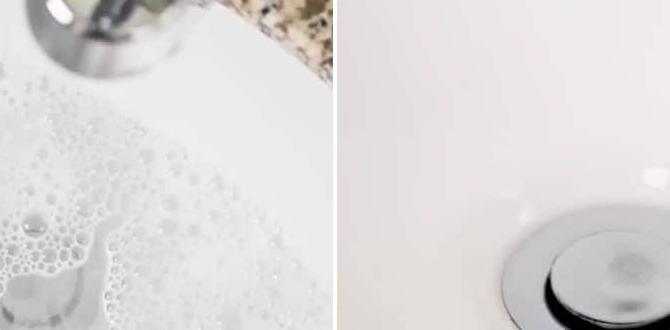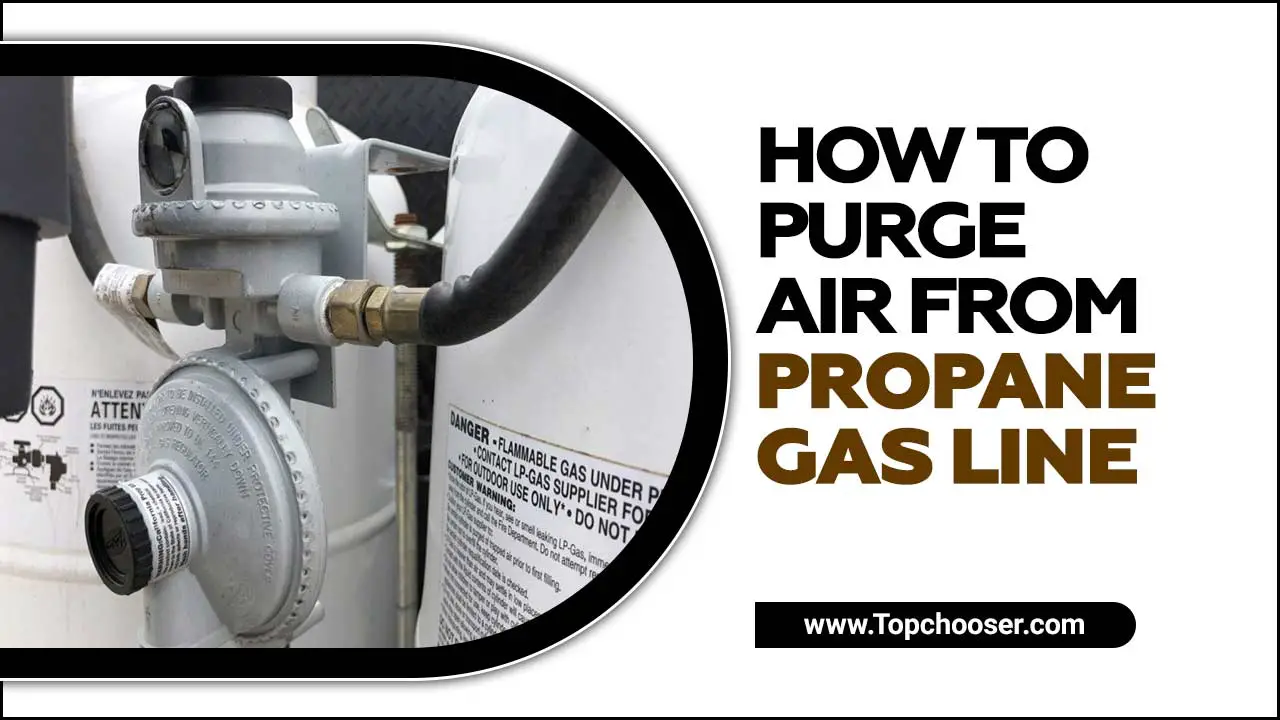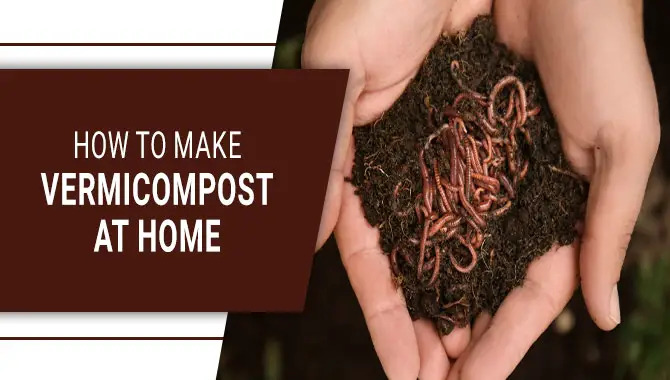Have you ever noticed that your kitchen or bathroom sink drains slowly? It can be really annoying when water pools around your feet while you brush your teeth or do the dishes. Many people face this problem, but not everyone knows how to fix a slow draining sink.
Imagine rushing to wash your hands after a messy snack, only to watch the water rise instead of swoosh away. Frustrating, right? The good news is that fixing a slow draining sink is something you can tackle without calling a plumber.
In this article, we’ll explore simple steps that can help you get your sink back to normal. You might be surprised at how easy it is to solve this common issue. So, grab your toolbox and let’s dive into the world of sink repairs!
How To Fix A Slow Draining Sink: Simple Solutions And Tips

How to Fix a Slow Draining Sink
Dealing with a slow-draining sink can be frustrating. You may wonder why it’s happening. Often, clogs build up from hair, soap, or food waste. Start by removing the drain cover and clearing any visible debris. Pour hot water down the sink to help dissolve stubborn gunk. If that doesn’t work, use a mixture of baking soda and vinegar for a natural cleaning boost! With a few simple steps, your sink can drain smoothly again. Isn’t it amazing how easy fixes can bring quick relief?
Common Causes of Slow Draining Sinks
Clogged drain pipes. Accumulation of grease and soap residues.
There are two main troublemakers behind a slow draining sink. First, clogged drain pipes are like tiny traffic jams for the water. Bits of food, hair, and other surprises can gather and block the path. Next is the build-up of grease and soap residues. These sticky substances love to hang out in pipes, making it hard for water to flow. Imagine a slippery slide clogged with goo—no fun for anyone!
| Cause | Description |
|---|---|
| Clogged Drain Pipes | Food, hair, or other debris stuck in the pipes. |
| Grease and Soap | Sticky residues forming a wall inside the pipes. |
Necessary Tools and Materials
List of essential tools (e.g., plunger, drain snake). Suggested ecofriendly cleaning solutions.
To tackle a slow-draining sink, gather a few key tools. You’ll need a plunger to create suction, a drain snake for those stubborn clogs, and some handy eco-friendly cleaners. Think baking soda and vinegar – they’re a classic duo, like peanut butter and jelly, but without the stickiness! Here’s a quick table of your must-have items:
| Tool/Material | Purpose |
|---|---|
| Plunger | To clear blockages |
| Drain Snake | To reach deep clogs |
| Baking Soda | Eco-friendly cleaner |
| Vinegar | Clears grime and odors |
With these tools in hand, you’re ready to take on that sink! Who knew cleaning could be such an adventure?
Step-by-Step Guide to Unclogging Your Sink
Using a plunger effectively. Utilizing a drain snake for deeper clogs.
Is your sink draining slower than a snail on vacation? Don’t worry! First, grab a plunger. Make sure to cover the drain tightly. Then, plunge away like you’re in a water fight! This method is ideal for shallow clogs. If that doesn’t work, it’s time to bring in the big guns—a drain snake. Insert it into the drain and twist it gently. This tool is fantastic for those pesky deeper clogs that love to hide!
| Tool | Best For |
|---|---|
| Plunger | Shallow clogs |
| Drain Snake | Deeper clogs |
Preventative Maintenance Tips
Regular cleaning habits to prevent clogs. Best practices for disposing of waste in the sink.
Keeping your sink happy is easier than you think! Regular cleaning is key. Use a mix of hot water and vinegar once a month to flush out gunk. Remember, your sink is not a trash can. Only let food scraps and liquids down the drain! Things like grease, coffee grounds, or pasta should take a vacation in the trash instead. Believe me, a little effort can save you from a big mess later!
| Do | Don’t |
|---|---|
| Run hot water after washing dishes | Pour grease down the drain |
| Use a sink strainer | Throw food down the drain |
| Clean the drain regularly | Ignore strange smells |
When to Call a Professional
Signs that indicate a more serious plumbing issue. Benefits of hiring a plumber versus DIY solutions.
It’s important to know when to get help. Look for signs that your sink issue might be worse than it seems. These signs include:
- Water backing up into other drains
- Strange sounds when water drains
- Unpleasant odors from the sink
Hiring a plumber has benefits. They can find hidden problems. They also know how to fix issues safely. DIY solutions can lead to more damage and cost you more in the long run. If you see those signs, it’s time to call a pro!
When Should You Call a Plumber?
If you notice any strange signs, you should call a plumber. They can help fix serious issues fast.
Alternative Remedies for Slow Draining Sinks
Natural solutions using baking soda and vinegar. Chemical drain cleaners: pros and cons.
Have you ever felt like your sink is auditioning for a slow-motion film? Fear not! You can try using baking soda and vinegar. This dynamic duo fizzes away grime like it’s going out of style. Just mix them and pour it down the drain. Give it a few minutes for the magic to happen. For those who prefer chemical cleaners, they can work wonders too, but they may have a few side effects on your pipes—like causing drama!
| Method | Pros | Cons |
|---|---|---|
| Baking Soda & Vinegar | Natural, safe for pipes | May not work on tough clogs |
| Chemical Cleaners | Fast action, strong | Can damage pipes, toxic fumes |
Choose your remedy wisely! With a little humor and a sprinkle of science, you can have that sink draining like a champ in no time.
FAQs About Slow Draining Sinks
Common questions and concerns from homeowners. Quick troubleshooting advice for minor issues.
Homeowners often have questions about slow draining sinks. Here are some common concerns:
What causes a sink to drain slowly?
Food debris, soap buildup, or hair can clog pipes and slow drainage.
How can I troubleshoot minor issues?
- Check for visible blockages inside the sink.
- Use a plunger to help clear minor clogs.
- Pour boiling water to dissolve grease.
By knowing these tips, you can act fast and keep your sink flowing well.
Conclusion
In conclusion, fixing a slow draining sink is easy. Start by removing visible clogs, like hair or food. Use a plunger or a drain snake for tougher blockages. Baking soda and vinegar can also help. If problems persist, check the pipes for bigger issues. You can do this! For more tips, explore DIY plumbing resources or ask a professional.
FAQs
What Are The Common Causes Of A Slow Draining Sink?
A slow draining sink can happen for a few reasons. First, you might have food scraps or hair stuck in the drain. Sometimes, soap can build up and create clogs too. Also, if there’s a problem with the pipes, that can make the water drain slowly. Regular cleaning can help keep your sink draining well!
How Can I Safely Remove Clogs Using Natural Remedies?
You can safely remove clogs using natural remedies like baking soda and vinegar. First, pour half a cup of baking soda down the drain. Then, add half a cup of vinegar. Cover the drain and wait 30 minutes. Finally, rinse with hot water to clear the clog.
What Tools And Materials Do I Need To Unclog A Slow Draining Sink?
To unclog a slow draining sink, you need a few simple tools. Grab a plunger, which is a tool that helps push the blockage out. You also need baking soda and vinegar. These two can help break down gunk in the pipes. Finally, have a bucket ready to catch any water that spills.
When Should I Consider Calling A Plumber For A Slow Draining Sink Problem?
You should call a plumber if your sink is draining very slowly for a long time. If the water stays in the sink and won’t go down, that’s a problem. Also, if you tried to fix it yourself and it didn’t work, it’s time to ask for help. A plumber can find the issue and fix it safely.
How Can Regular Maintenance Help Prevent Slow Draining Sinks In The Future?
Regular maintenance keeps your sink clean. When we clear out food or hair, it won’t get stuck. You can also check for clogs early. This helps the water flow better. When we take care of our sinks, they drain faster!








